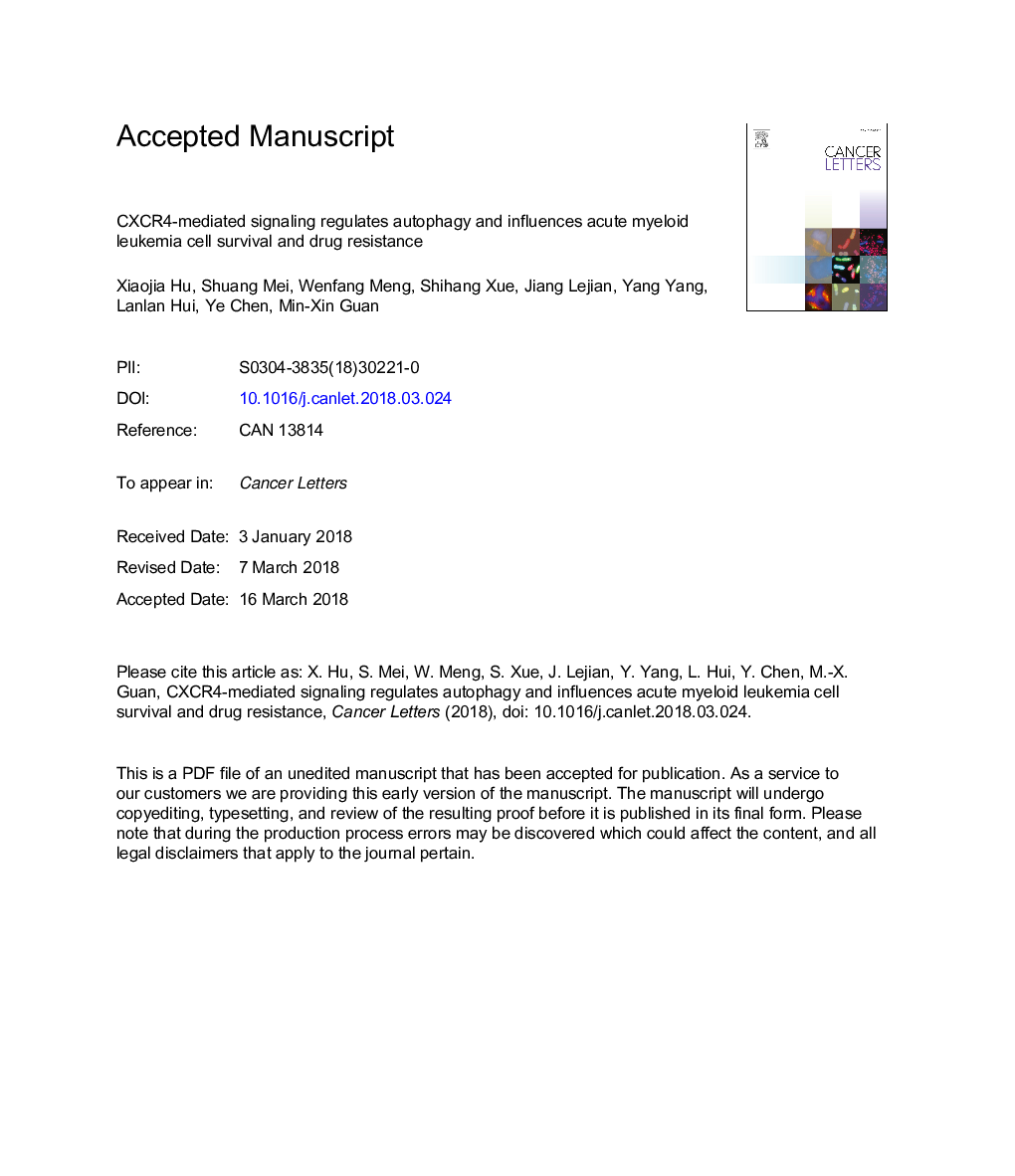| Article ID | Journal | Published Year | Pages | File Type |
|---|---|---|---|---|
| 8434445 | Cancer Letters | 2018 | 38 Pages |
Abstract
CXCR4 surface expression is considered an independent prognostic factor for disease relapse and survival in acute myeloid leukemia (AML) patients. Herein, we investigated targetable autophagy-related mechanisms of CXCR4 for AML therapy. Our experiments show that activation of CXCR4 signaling in AML cells increases autophagic activity and decreases cytarabine-induced apoptosis. Accordingly, combined use of autophagy inhibitors significantly increased the sensitivity of AML cells to cytarabine in vitro and in vivo. Moreover, expression of autophagy-related protein SIRT1 was correlated with SDF-1α-CXCR4 signaling, which interacts with autophagy proteins, such as ATG5 and LC3. Furthermore, in primary human AML samples, high CXCR4 expression was associated with elevated expression levels of SIRT1 and other autophagy-related proteins. Collectively, our data suggest new roles of SDF-1α-CXCR4 signaling on autophagy induction in AML cells, which further promoted their survival under stress. Targeting the SDF-1α-CXCR4-autophagy signaling may contribute to an enhanced efficacy of active treatments.
Related Topics
Life Sciences
Biochemistry, Genetics and Molecular Biology
Cancer Research
Authors
Xiaojia Hu, Shuang Mei, Wenfang Meng, Shihang Xue, Lejian Jiang, Yang Yang, Lanlan Hui, Ye Chen, Min-Xin Guan,
